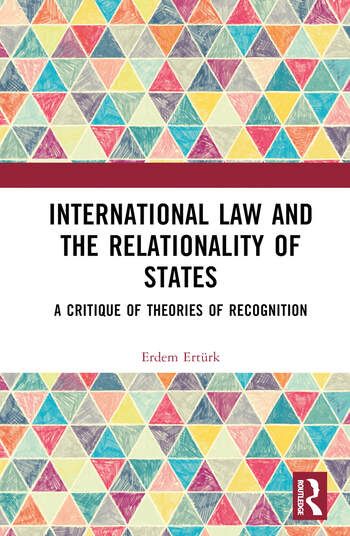
This book critically engages with theories of the recognition of states under international law. Demonstrating that recognition is a constitutive relation that is imperative for the construction of international subjects, the book argues that prevalent theories of recognition fall short of accommodating this imperative.
The book traces the source of this shortcoming to Vattel’s notion of absolute sovereignty. A paradox pertains to this notion as absolutely independent states seemingly come into being in a community which sets the law that determines statehood. The book shows how this paradox is reproduced in constitutive theorists’ idea of recognition as a sovereign gesture of consent and declarative theorists’ perception that states can come into being on a singular basis, without any need for interaction. This necessitates a rethinking of the role of recognition in a way that circumvents the problems generated by the notion of absolute independence, whilst accommodating the relational element of coming into being. To achieve this purpose, the book draws upon Hegel’s theory of recognition, supplementing it with Bataille’s and Derrida’s critical readings of Hegel’s thought. In this respect, the book departs from the restrictive economy of recognition that constantly recreates a paradoxical perception of sovereignty, elaborating a more general economy of recognition that accommodates the notion of subjects in flux.
This critical engagement with a key notion in international law will appeal to legal and political theorists, as well as scholars and students in international relations.